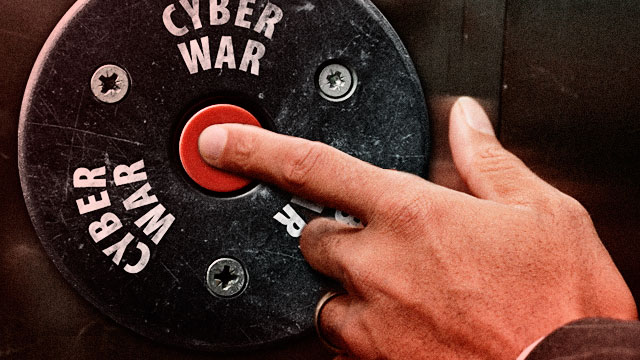
US Fears Iranian Cyber Threat

"Against this backdrop, getting ahead of the Iranian cyber-threat to the U.S. is all the more relevant and all the more timely. The reach of Iran's proxies has gone global. Hizbullah's activities now stretch from West Africa to the tri-border area of Argentina, Brazil and Paraguay," he claimed.
Under the title "Iranian Cyber Threat to the US Homeland", US officials warned that "the Stuxnet cyber-attack against Iran's nuclear program may have spurred the Islamic Republic to invest in a more aggressive cyber-warfare apparatus."

This week, however, concerns were raised at the US Congress that the cyber-attack may have been the "crossing of the Rubicon" for Iran, motivating it to engage in cyber-war against US targets, including critical infrastructure.
During a hearing of the Counterterrorism and Intelligence Subcommittee, US Cyber-security Rep. Yvette Clarke (D) of New York said that "it would also be possible for Iran to gain some knowledge for creating a Stuxnet-like virus from analyzing its effects."
"This leads to fear of reverse engineering, leading to a capability of the types of cyber-attacks on US critical infrastructure that could rise to the level of a national security crisis," the US official warned.
Clarke urged US agencies to "be prepared for such rogue actions and be prepared on the national defense level as well as protecting our critical business operations, vital infrastructure functions and, frankly, our daily lives."
"Since Iran appears to have the necessary cyber-capability, we can only hope that they will fear the overwhelming US response that would surely follow such an Iranian cyber-attack against our nation," he added.
For his part, Clarke's colleague Rep. Dan Lungren (R) of California warned that "as the victim of two recent cyber-attacks on nuclear and oil infrastructure and multiple US embargoes, Iran, it would seem, would have motivation to strike out against those they think are responsible or anybody associated with those they think are responsible, or anybody who would stand on the sidelines and cheer those efforts."
He further added that "Iran's opportunity arises, as US critical infrastructure companies have been slow to harden their assets against cyber-attacks."
Lungren reminded the committee members of the report issued in 2008 by an American security contractor which rated "Iran's cyber-capability among the top five globally."
A more recent report, from December of 2011, indicated that Iran was investing $1 billion in new cyber-warfare technology.
According to the Director of National Intelligence Director [James] Clapper, "Iran's intelligence operations against the US, including cyber-capabilities, have dramatically increased in recent years in depth and complexity."
Frank Cilluffo, Associate Vice President and Director of the US Homeland Security Policy Institute at George Washington University, argued in his testimony that the level of tension appears to be rising.
"We have seen an uptick in attempted and actual attacks on and assassinations of "Israeli", Jewish, US and Western interests from Beirut to Baku to Bangkok, and of course, the recent assassination attempt on the Saudi ambassador on US soil," he said.
Cilluffo stated that "Hizbullah's nexus with criminal activity is greater than that of any other known terrorist group."
"These links, including with gangs and cartels, generate new possibilities for outsourcing and new networks that can facilitate terrorist travel, logistics, recruitment, and operations, and I might note, including cyber," he warned.
The Director of US National Intelligence, General Clapper uncovered that "Iran is investing heavily in building its cyber-warfare capabilities, including standing up the Iranian Cyber Army, which is in addition to their more conventional and traditional electronic warfare capabilities, which were quite sophisticated to begin with."
"The recent hack of a security certificate company in the Netherlands - a Dutch company - demonstrated not only their hacking skills, but their ability to manipulate data as well," Clapper said.
Source: Haaretz, Edited by moqawama.org



